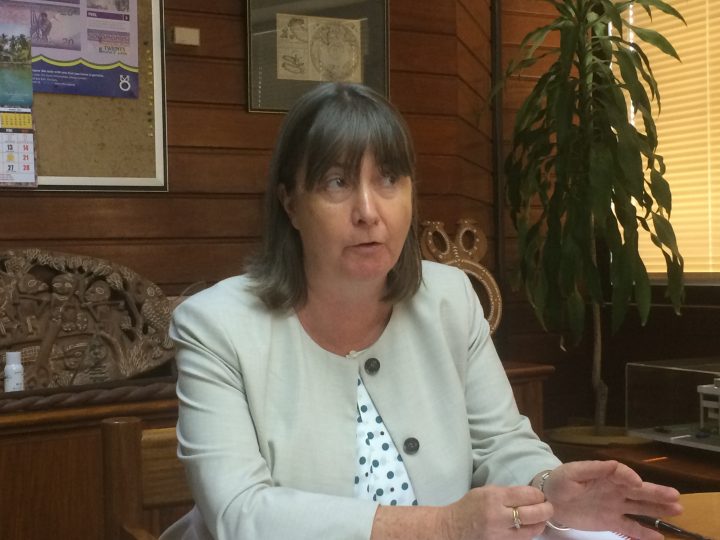IMF completes Article IV Mission in Solomon Islands
The Solomon Islands economy has shown an encouraging growth projected at 3.4 percent in 2018.
The International Monetary Fund’s 2018 Article IV Mission to Solomon Islands announced this yesterday.
Country Mission Chief Alison Stuart said the growth reflects an accelerated logging output, infrastructure spending, fisheries, agriculture and manufacturing.
On the other hand Ms Stuart said, the Government’s budget position since 2016 and 2017 has deteriorated, with increasing cash flow problems and domestic arrears.
She said the trend has continued into 2018, showing high spending in some areas.
“The spending in some areas such as the Constituency development funds, tertiary education scholarships and shipping grants have remained high but the development budget has cut spending in some areas quite sharply,” she said.
To help rebuild the rebuild the cash balance and clear the arrears, the IMF team suggested strengthening revenue compliance, public financial management and redirecting the 2019 budget.
“Redirecting spending to priority areas in line with the National Development Strategy and aim to curb spending in Constituency Development Funds and Shipping grants.”
It was also suggested that the Government make the Constituency Development Fund transparent.
Ms Stuart said with the current system, it is difficult to know how effective the CDF is or what gaps of services remain for the rural areas with its implementation.
She said they would like to see the CDF implemented according to the principles set out by the Commonwealth.
“We would like to see Transparency of the funds, the financial use of the funds and accounting for how they’ve been used, what areas they’ve been used and what the managers of those funds expect to do with them in the future,”Ms Stuart said.
“This would help us to assess which areas the funds are going into and would help us see at the local level where there are service provision gaps that need to be filled by provincial government or by Central government or by help from development Partners.”
Ms Stuart said new sources of growth are needed to replace the logging sector and sustain incomes for the growing population.
Mining she said, is the most likely important sector.
“While other sectors have potentials to develop, mining is likely to be the most important growth sector in terms of scale. But other countries’ experience show that transparency, a strong regulatory and policy environment, and a robust tax regime are needed to fully reap the benefits.”
By: Kikiva Tuni


